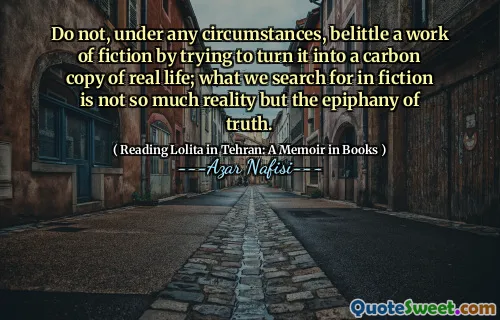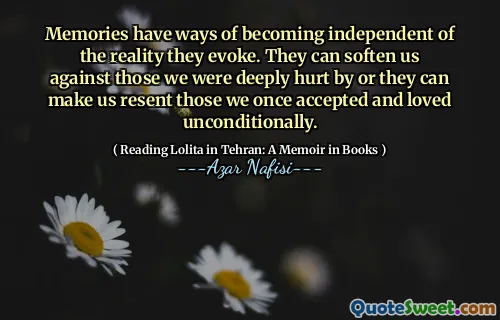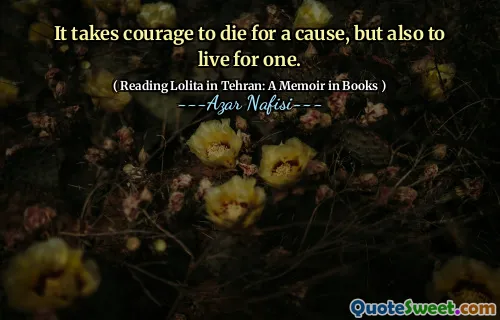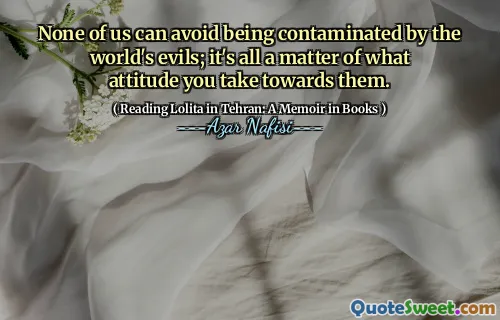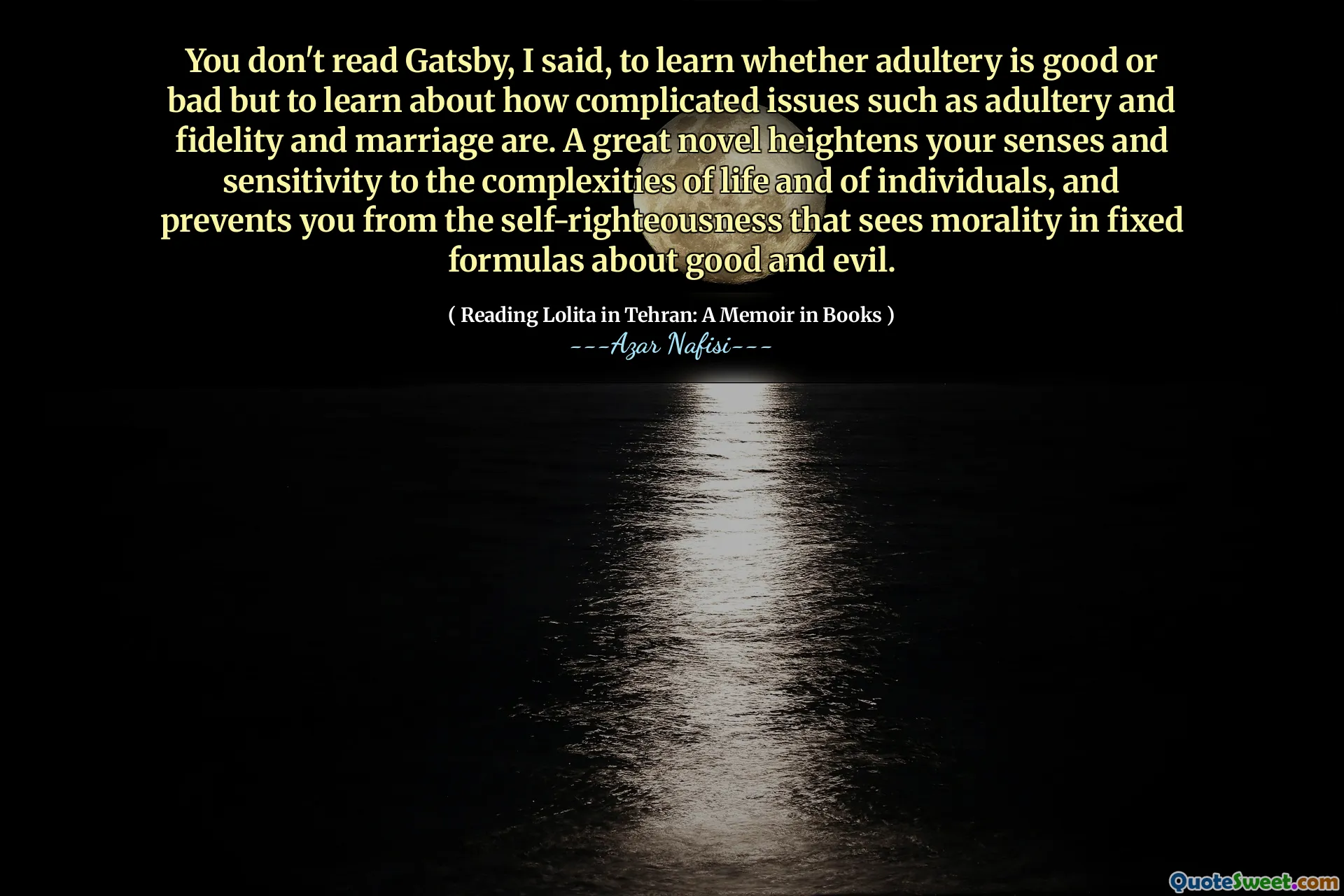
You don't read Gatsby, I said, to learn whether adultery is good or bad but to learn about how complicated issues such as adultery and fidelity and marriage are. A great novel heightens your senses and sensitivity to the complexities of life and of individuals, and prevents you from the self-righteousness that sees morality in fixed formulas about good and evil.
📖 Azar Nafisi
In Azar Nafisi's memoir, "Reading Lolita in Tehran," she emphasizes that literature, particularly novels like "The Great Gatsby," serves not to provide simple moral judgments but to explore the intricate human experiences surrounding themes such as adultery and fidelity. By engaging deeply with these narratives, readers can better appreciate the nuanced realities of life and relationships rather than adhering to rigid moral codes.
Nafisi argues that great literature enriches our understanding and emotional sensitivity, fostering a more profound awareness of human complexity. This approach encourages self-reflection and helps individuals move away from simplistic views of morality, allowing for a deeper engagement with the ethical dilemmas faced in real life.

